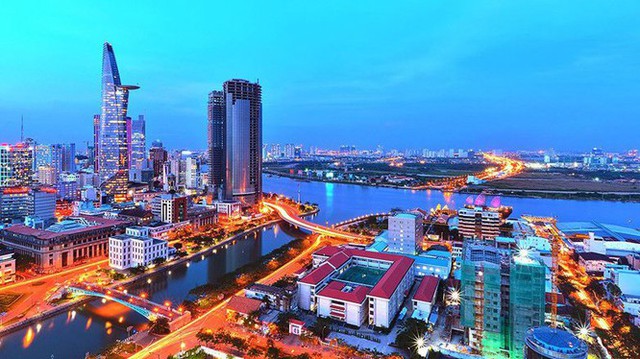Viet Nam among 100 economies with highest economic freedom: Fraser Institute
VGP – Viet Nam ranks 99th out of 165 countries and territories in terms of economic freedom, according to Canada-based Fraser Institute.

Viet Nam has emerged to be among the top 40 leading economies, with a trade volume in the top 20 economies in the world, an important link in 16 free trade agreements involving 60 major economies in the region and the world.
This is the first time Viet Nam makes its way into the top 100 economies with the highest score of economic freedom.
The 2024 Economic Freedom of the World (EFW) index published by Fraser Institute measures the degree to which the policies and institutions of countries permit people to make their own economic choices.
The institute uses 45 data points—organized into five broad areas (size of government, legal system and property rights, sound money, freedom of trade internationally, regulation)—to construct an overall index.
From a land without a name on the world map, from a war-torn country, Viet Nam has risen to become a symbol of peace, stability, hospitality, and a destination for international investors and tourists.
From a backward economy, Viet Nam has emerged to be among the top 40 leading economies, with a trade volume in the top 20 economies in the world, an important link in 16 free trade agreements involving 60 major economies in the region and the world.
From an isolated country, Viet Nam has established diplomatic relations with 193 countries around the globe, strategic and comprehensive partnerships with 30 countries including all permanent members of the United Nations Security Council and major countries, and is an active member of more than 70 regional and international organizations.
According to Dr. Dinh Minh Tuan, Viet Nam introduced a new mindset for economic management since 2011, resulting in improvements in the index of economic freedom, from 141st to 99th out of 165 countries and territories around the world.
He suggested Viet Nam should focus on macroeconomic stability, considering it as the top priority.
The Southeast Asian nation should continue to use public investment as a driver for luring more investments from private and FDI sectors into infrastructure development.
The country should also further expand international trade and lift non-tariff trade barriers to better utilize opportunities from international trade pacts.
Viet Nam should also speed up the equitization of state-owned enterprises while divesting capital from sectors that domestic private enterprises are capable of taking over.
